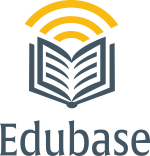Harnessing ICT to support the mixed-mode delivery framework
DOI:
https://doi.org/10.7213/rde.v10i31.2650Resumo
To teach the net generation in today’s classrooms, it calls for innovativeteaching and learning strategies that are engaging so as to sustain learners’interest in learning. This paper describes how Singapore has successfullylaunched ICT initiatives in schools and expounds the use of the MixedMode Delivery (MMD) pedagogical model in ICT-Rich classroomsin Singapore educational context. This paper discusses how ICT isharnessed so as to support the MMD model where student teachersare empowered with a wide repertoire of strategies and tools to createa more positive learning environment. The paper concluded with theremark on the importance of the MMD as a viable pedagogical modelfor sustaining interest of learners in a high-tech world.Downloads
Referências
AKAR, H. Impact of constructivist learning process on preservice teacher education students’ performance, retention, and attitudes. Dissertation (Doctoral) – Middle East Technical University, Ankara, 2003.
ANDREWS, J.; GARRISON, D. R.; MAGNUSSON, K. The teaching and learning transaction in higher education: a study of excellent professors and their students. Teaching in Higher Education, n. 1, p. 81-103, 1996.
BARR, R. B.; TAGG, J. From teaching to learning: a new paradigma for undergraduate education. Change, v. 27, n. 6, p. 12-25, 1995.
BARROWS, H. S. A taxonomy of problem-based learning methods. Medical Education, n. 20, p. 481-486, 1986.
BARROWS, H. S. Problem-based learning applied to medical education. Springfield, IL: Southern Illinois University School of Medicine, 2000.
BOUD, D.; FELETTI, G. The challenge of problem-based learning. 2nd ed. London: Kogan Page, 1997.
COGNITION AND TECHNOLOGY GROUP AT VANDERBILT. Anchored
instruction and situated cognition revisited. Educational Technology, v. 33, n. 3, p. 52-70, 1993.
DEPORTER, B.; HERNACKI, M. Quantum pathways: discovering your personal learning style. Oceanside, CA: Learning Forum Publications, 2000.
DODGE, B. WebQuest Page. 2002. Disponível em: <http://webquest.sdsu. edu>. Acesso em: 15 Dec. 2009.
GIBBS, G. Improving the quality of student learning through course design. In: BARNETT, R. (Ed.). Learning to effect. Buckingham: SRHE/Open Press, 1992. p. 149-168.
HAND, B.; TREAGUST, D. F.; VANCE, K. Student perceptions of the social constructivist classroom. Science Education, n. 81, p. 561-575, 1997.
JONASSEN, D. H. Computers in the classroom: mind tools for critical thinking. Englewood Cliffs, NJ: Prentice-Hall, Inc, 1996.
KOH, N. K. The authentic evaluation of teachers using the mixed mode assessment model. In: INTERNATIONAL CONFERENCE ON TEACHING AND LEARNING IN HIGHER EDUCATION – ICTLHE, 1., 2004, NUS, Singapore. Proceedings… NUS, Singapore: iCTLHE, 2004.
LOOI, C.-K.; HUNG, D.; BOPRY, J.; KOH, T.-S. Singapore’s learning sciences lab: Seeking transformations. ICT-Enabled Pedagogy. Educational Technology Research and Development, v. 52. n. 4, p. 91-99, 2004.
MCKENZIE, J. Beyond technology: questioning, research and the information literate school. Bellingham, WA: FNO Press, 2000.
MINISTRY OF EDUCATION – MOE. Recognizing school achievements in 2008. Disponível em:<http://www.moe.gov.sg/media/press/2008/09/recognising-school-achievement.php>. Acesso em: 29 Dec. 2009.
NG, E. H. Opening Address by Minister for Education and Second Minister for Defence. In: INTERNATIONAL CONFERENCE ON TEACHING
AND LEARNING WITH TECHNOLOGY – ICTLT, 1., 2008, Singapore. Proceedings… Singapore: iCTLT, 2008.
RAINER, J. D.; MATTHEWS, N. M. Ownership of learning in teacher education. Action in Teacher Education, v. 24. n. 1, p. 22-30, 2002.
TAN, O. S. Enhancing thinking through problem-based learning approaches. Singapore: Thomson Learning, 2004.
TOBIN, K.; TIPPINS, D. J. Constructivism as a referent for teaching and learning. In: TOBIN, K. (Ed.). The practice of constructivism in science education. Hillside, NJ: Lawrence Erlbaum & Associates, 1993. p. 3-21.
YLANNE, S. L.; LONKA, K. Individual ways of interacting with the Learning environment - Are they related to study success? Learning and Instruction, n. 9, p. 1-18, 1999.
Downloads
Publicado
Como Citar
Edição
Seção
Licença
O(s) autor(es) transfere(m), por meio de cessão, à EDITORA UNIVERSITÁRIA CHAMPAGNAT, pessoa jurídica de direito privado, inscrita no CNPJ/MF sob o n.º 76.659.820/0009-09, estabelecida na Rua Imaculada Conceição, n.º 1155, Prado Velho, CEP 80.215-901, na cidade de Curitiba/PR, os direitos abaixo especificados e se compromete a cumprir o que segue:
- Os autores afirmam que a obra/material é de sua autoria e assumem integral responsabilidade diante de terceiros, quer de natureza moral ou patrimonial, em razão de seu conteúdo, declarando, desde já, que a obra/material a ser entregue é original e não infringe quaisquer direitos de propriedade intelectual de terceiros.
- Os autores concordam em ceder de forma plena, total e definitiva os direitos patrimoniais da obra/material à EDITORA UNIVERSITÁRIA CHAMPAGNAT, a título gratuito e em caráter de exclusividade.
- A CESSIONÁRIA empregará a obra/material da forma como melhor lhe convier, de forma impressa e/ou on line, inclusive no site do periódico da EDITORA UNIVERSITÁRIA CHAMPAGNAT, podendo utilizar, fruir e dispor do mesmo, no todo ou em parte, para:
- Autorizar sua utilização por terceiros, como parte integrante de outras obras.
- Editar, gravar e imprimir, quantas vezes forem necessárias.
- Reproduzir em quantidades que julgar necessária, de forma tangível e intangível.
- Adaptar, modificar, condensar, resumir, reduzir, compilar, ampliar, alterar, mixar com outros conteúdos, incluir imagens, gráficos, objetos digitais, infográficos e hyperlinks, ilustrar, diagramar, fracionar, atualizar e realizar quaisquer outras transformações, sendo necessária a participação ou autorização expressa dos autores.
- Traduzir para qualquer idioma.
- Incluir em fonograma ou produção audiovisual.
- Distribuir.
- Distribuir mediante cabo, fibra ótica, satélite, ondas ou qualquer outro sistema que permite ao usuário realizar a seleção da obra ou produção para recebê-la em tempo e lugar previamente determinados por quem formula a demanda e nos casos em que o acesso às obras ou produções se faça por qualquer sistema que importe em pagamento pelo usuário.
- Incluir e armazenar em banco de dados, físico, digital ou virtual, inclusive nuvem.
- Comunicar direta e/ou indiretamente ao público.
- Incluir em base de dados, arquivar em formato impresso, armazenar em computador, inclusive em sistema de nuvem, microfilmar e as demais formas de arquivamento do gênero;
- Comercializar, divulgar, veicular, publicar etc.
- Quaisquer outras modalidades de utilização existentes ou que venham a ser inventadas.
- Os autores concordam em conceder a cessão dos direitos da primeira publicação (ineditismo) à revista, licenciada sob a CREATIVE COMMONS ATTRIBUTION LICENSE, que permite o compartilhamento do trabalho com reconhecimento da autoria.
- Os autores autorizam a reprodução e a citação de seu trabalho em repositórios institucionais, página pessoal, trabalhos científicos, dentre outros, desde que a fonte seja citada.
- A presente cessão é válida para todo o território nacional e para o exterior.
- Este termo entra em vigor na data de sua assinatura e é firmado pelas partes em caráter irrevogável e irretratável, obrigando definitivamente as partes e seus sucessores a qualquer título.
- O não aceite do artigo, pela EDITORA UNIVERSITÁRIA CHAMPAGNAT, tornará automaticamente sem efeito a presente declaração.












